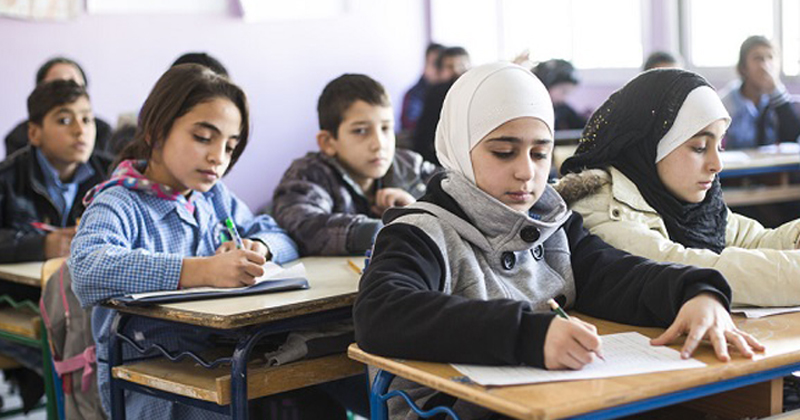When Worlds Collide: Exams During Ramadan
by Hugh Fitzgerald

Recently some Muslim students have complained about having to take final examinations during Ramadan, that this year begins on May 5 and ends on June 4. It’s a puzzlement: in most states the laws require schools and colleges to provide “reasonable accommodation” to the religious needs of its students. But what can be done when Ramadan and scheduled exams so completely coincide?
If Muslims claim that they are in a mentally weakened state during Ramadan because they can neither eat nor drink all day long, what kind of “reasonable accommodation” can be made? Some might think they should be allowed to take examinations once Ramadan is over. But if it is the same exam as the one that had already taken by their non-Muslim classmates, there is a danger that they will obtain some or all of the exam questions in advance. The solution might be to give them different examinations on the same material: Exam #1 for non-Muslims, Exam #2 for Muslims..
But if Muslims are to be provided with a different examination, this raises all sorts of other questions.
First, is Exam #2 easier, or harder than, or possibly of the same difficulty, as Exam #1? Who decides? The students? The professor? A faculty committee that includes Muslims?
Second, what if some Muslim students who took, post-Ramadan, Exam #2, claim they were graded unduly harshly, that they have discovered that the average grade for Muslim exam-takers was lower than that for the non-Muslims? What if they suggest that “islamophobia” was involved? Even if they do not put their names on the exam,, only an identifying number, the professor will have known that all the students taking Exam #2 are Muslims, so it could be claimed that if the grading results for Exam #2 are skewed to the left (with a lower grade average), as compared to the grades for Exam #1, that is prima facie evidence of “islamophobia.” Would any professor dare to suggest, in the current climate, that the grading was fair, that if the Muslim students, as a group, performed less well than non-Muslims, that only reflects such factors as:
1) poorer test-taking skills
2) less time dedicated to studying the course material
3) less time dedicated to exam preparation in particular
4) for some Muslims, a non-native command of English
5) the deleterious effects, physical and mental, of “cousin marriage” which is favored in many Muslim societies and has led –in Great Britain for example — to high levels of congenital illnesses.
6) the effect of Islam itself on mental development, because the faith favors rote memorization (above all of the Qur’an)
7) Islam discourages free and skeptical inquiry, which might lead some to call the faith itself, or aspects of it, into question, and therefore is to be avoided,
Another possible complaint by Muslim male students: what if the exam-room monitors are non-hijabbed non-Muslim women, in Western and therefore provocative dress, the sight of whom, they claim, interfered with their concentration?
Muslim female students might claim that exam monitors who are males, and circulate among the female exam-takers, watching carefully to ensure that no cheating is going on, such as concealing notes under a niqab (that can be slipped out to be furtively read). would be similarly distracting.
What about the need claimed by some Muslim students to leave the exam room in order to say one of the daily prayers that occur between sunrise and sunset, should that prayer time coincide with the time the exam is being administered? Can they be denied that right — if indeed it is a right? What about the likelihood of a surreptitious sharing of information about questions and answers, among the group of students going to and from the prayer hall?
All kinds of problems arise when Ramadan overlaps so completely, as it does this year, the month of scheduled exams.
There is no easy solution to this problem. Is there a hard one?
First published in Jihad Watch.